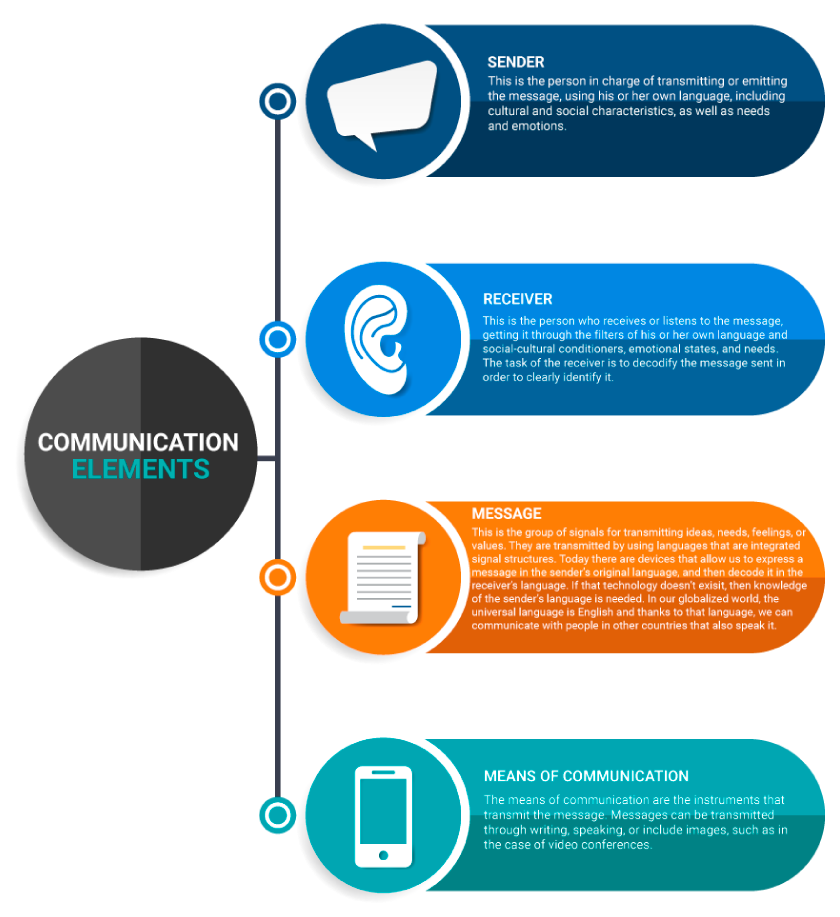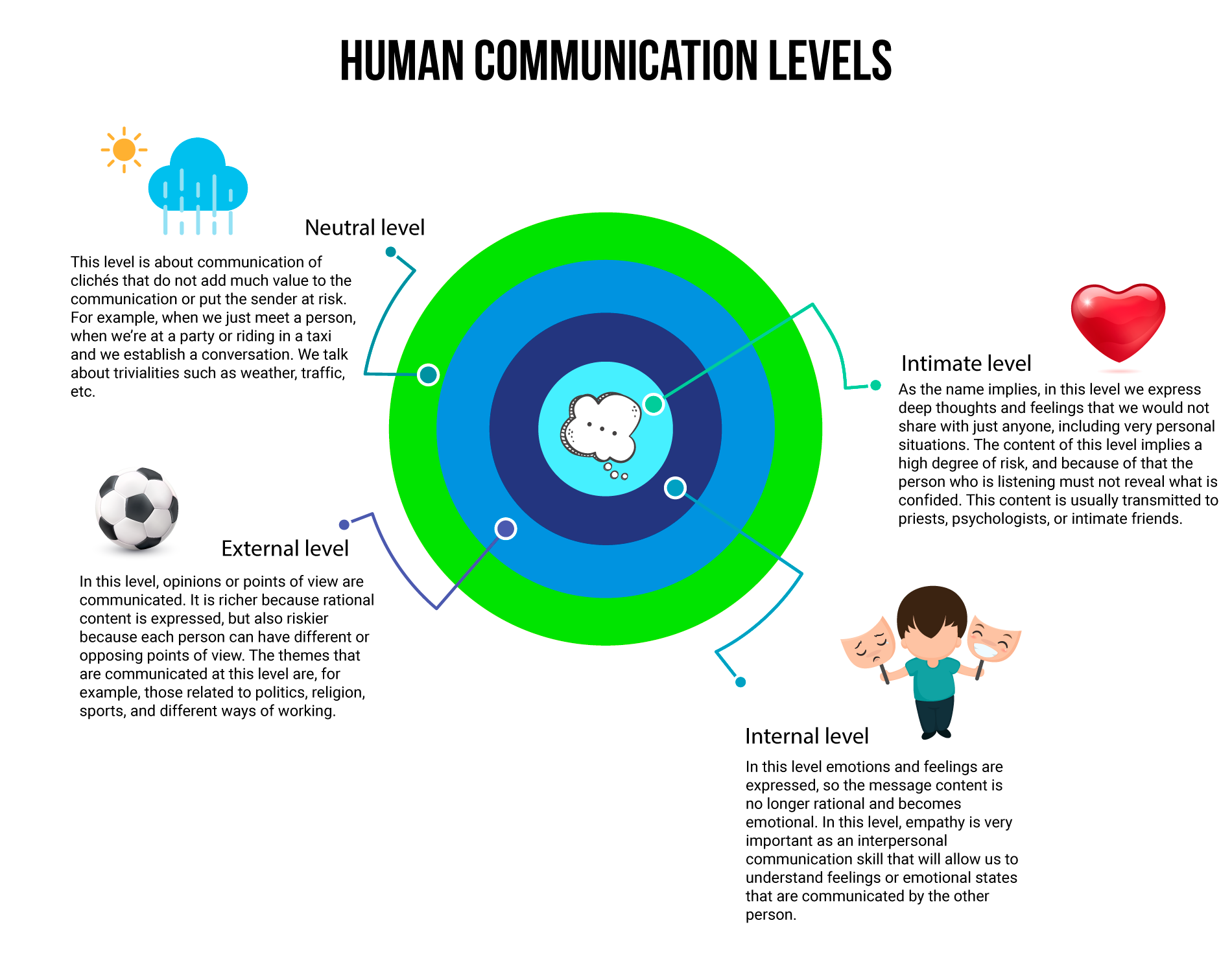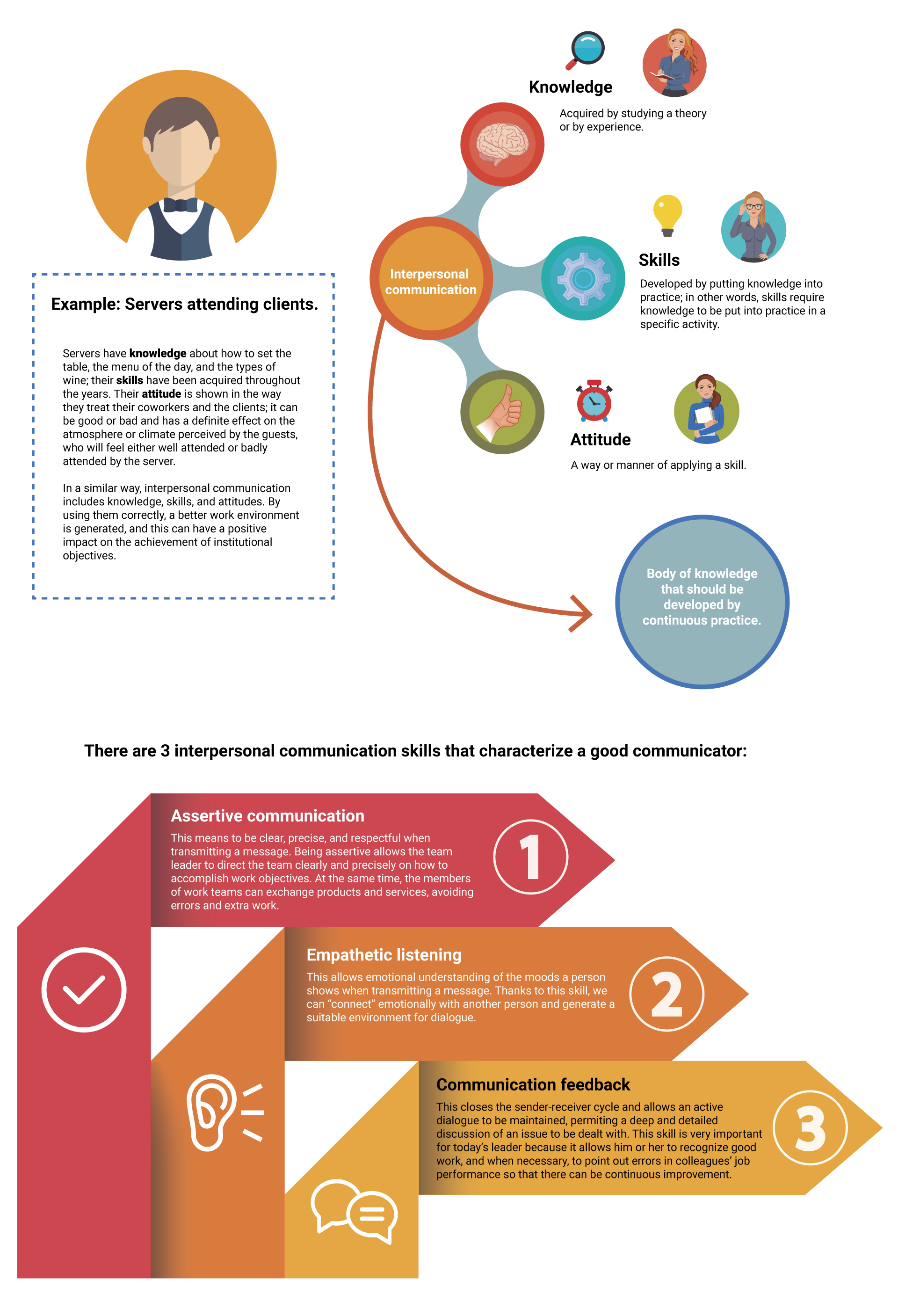Week 1 - What is communication
What is communication
- humans don’t make communication, but instead, we ARE communication
- The purpose of human communication is to to try to connect with or tune into other people, but with a concrete purpose, that of reaching agreements that will allow us to solve problems or conflicts that arise in any relationship, so we can reach agreements, precisely, and that they may be productive
- first step to being an effective communicator is to identify on what level of communication we are transmitting our thoughts and feelings
- 1 - neutral level - trivialities and clichés; that is, topics that don’t affect us and don’t commit us … wheater
- 2 - external level - points of view and opinions
- 3 - internal level - emotions & feelings
- 4 - intimate level - express deep ideas and feelings, sharing values and secrets
- humans are unique because we pursue objectives through communication or to establish agreements that are mutually beneficial.
- “comunicare,” to make something common - find points in common
Infographic showing communication elements, the 4 communication levels, interpersonal communication skills - assertive communication, empathetic listening and communication feedback



Clear and direct communication
[[WOo_RmEkSeiqP0ZhJJno6w_fae656c3cdf24b4fb534cfdbff70ab62_Recommendations-for-clear-direct-communication.pdf|RECOMMENDATIONS FOR CLEAR DIRECT COMMUNICATION]]
-
Express your request in a clear direct manner.
- “Excuse me, let me finish what I was saying; then, if you still have a question, I’ll be happy to answer it.”
-
Show respect and consideration for the person you are communicating with.
- “I realize it will be time consuming, but could you prepare a report on the history of our relationship with client X and present it on Friday at 3:00 at the sales meeting?”
-
Concentrate on the specifics.
- People understand our messages easier if we are specific.
- Explain your own point of view or feelings about the issue.
-
Make conversation a true dialogue owing in both directions.
- “What other data do you think would be important for planning a high impact campaign?”
3 Interpersonal communication skills
Assertivecommunication
- be clear, precise and respectful
- It’s about clear, direct, honest, and respectful communication, maintaining a balance between non-assertiveness and aggression
empathetic listening
- understand moos
- It involves understanding emotions expressed by others and requires both skill and disposition.
Communication feedback
- active dialog
- This helps in verifying the transmitted messages and is crucial for leaders to ensure continuous performance improvement.
Linking
- ➡ Week 2 - Assertive Communication
- [[eBook-Job-Skills-of-2023.pdf]]
- 21 Important Skills
- [[How to explain anything to anyone- 4 steps to clearer communication]]
Notes mentioning this note
Moc course effective communication and negotiation
<!DOCTYPE html PUBLIC “-//W3C//DTD HTML 4.0 Transitional//EN” “http://www.w3.org/TR/REC-html40/loose.dtd”>
MOC Course Effective Communication and Negotiation
Week 1 negotiation analysis
<!DOCTYPE html PUBLIC “-//W3C//DTD HTML 4.0 Transitional//EN” “http://www.w3.org/TR/REC-html40/loose.dtd”>
Week 1 - Negotiation Analysis